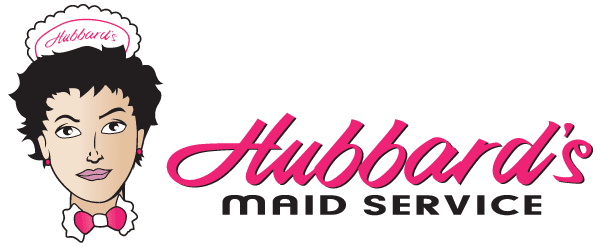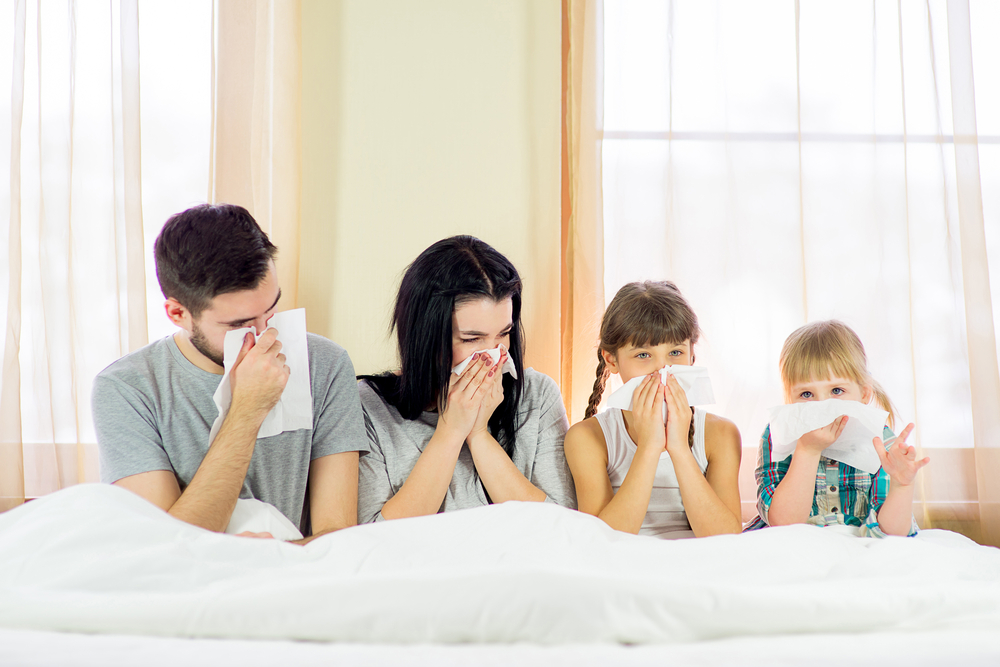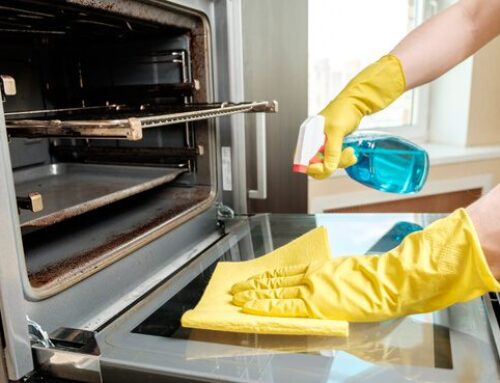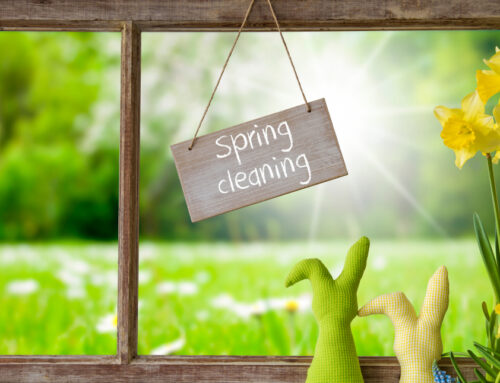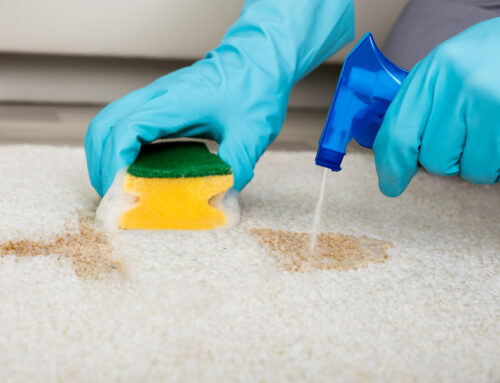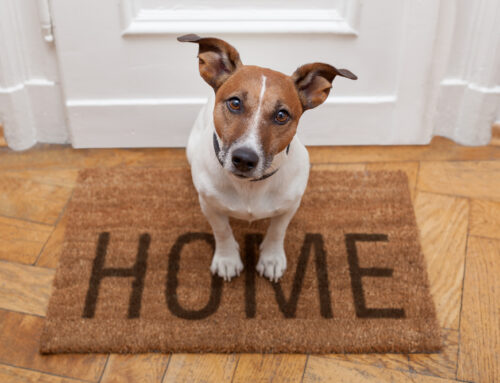As allergy season approaches, people with allergies or sensitive immune systems need to take extra precautions to keep their homes free from allergens. Allergens such as pollen, dust mites, and pet dander can trigger allergic reactions, leading to sneezing, coughing, and runny noses. This article will provide you with tips on how to keep your home clean and reduce allergens during allergy season.
1. Understanding Allergies and Allergens
Before you start cleaning your home, it is important to understand what allergies are and the common allergens that trigger allergic reactions. Allergies occur when your immune system overreacts to a foreign substance, such as pollen, dust mites, or pet dander. These allergens can enter your body through inhalation, ingestion, or skin contact. The most common symptoms of allergies are sneezing, runny nose, itchy eyes, and skin rashes.
2. Start with a Plan
The first step to keeping your home clean during allergy season is to create a plan. Identify the areas in your home that need the most attention and prioritize them. Make a schedule for cleaning and stick to it. You can break down your cleaning tasks into daily, weekly, and monthly chores. Having a plan will make it easier to manage your cleaning routine and reduce the risk of missing important cleaning tasks.
3. Keep Your Floors Clean
The floors in your home are a prime spot for allergens to accumulate. Pollen, dust mites, and pet dander can settle on your carpets and rugs, triggering allergic reactions. To keep your floors clean, vacuum regularly with a vacuum cleaner that has a HEPA filter. Sweep and mop your hard floors to remove any dust or debris. If you have pets, make sure to clean their paws before they enter your home to reduce the amount of allergens they bring in.
4. Don’t Forget the Upholstery
Upholstered furniture can also harbor allergens. Dust mites and pet dander can accumulate on your couches, chairs, and curtains. To keep your upholstery clean, vacuum regularly and use a steam cleaner to deep clean your furniture. You can also use allergen-proof covers on your pillows, mattresses, and box springs to reduce exposure to allergens.
5. Keep Your Bedding Clean
Your bedding can also harbor allergens such as dust mites and pet dander. To keep your bedding clean, wash your sheets, pillowcases, and blankets weekly in hot water. Use a hypoallergenic detergent and avoid using fabric softeners, which can trap allergens in your bedding. If you have a down comforter or pillows, consider switching to hypoallergenic alternatives.
6. Control the Humidity
Humidity can promote the growth of mold and dust mites, which can trigger allergic reactions. Keep the humidity level in your home between 30-50% to prevent the growth of allergens. You can use a dehumidifier to reduce humidity levels in your home and prevent the growth of mold and dust mites.
7. Clean Your Air Ducts
The air ducts in your home can accumulate dust and debris, which can circulate throughout your home and trigger allergic reactions. It is recommended to have your air ducts professionally cleaned every three to five years. This will help to remove any accumulated dust and debris, improving the air quality in your home and reducing the risk of allergic reactions.
8. Use HEPA Filters
High-Efficiency Particulate Air (HEPA) filters are designed to capture and remove small particles such as pollen, dust mites, and pet dander from the air. HEPA filters can be used in your vacuum cleaner, air purifier, and HVAC system. Make sure to change your HEPA filters regularly to ensure they are working effectively.
9. Clean Your Pets
Pets can bring allergens such as pollen and dust into your home. It is important to keep your pets clean and groomed to reduce the amount of allergens they bring into your home. Bathe your pets regularly and brush them outside to remove any loose hair and debris. If your pet is a frequent source of allergies, consider keeping them out of certain areas of your home.
10. Keep Your Windows Closed
Opening your windows can let in allergens such as pollen and dust. Keep your windows closed during allergy season to reduce the amount of allergens that enter your home. You can also use air conditioning to keep your home cool and comfortable.
11. Use Natural Cleaning Products
Chemical cleaning products can release harmful fumes that can trigger allergic reactions. Consider using natural cleaning products such as vinegar, baking soda, and lemon juice to clean your home. These natural cleaning products are safe, effective, and affordable.
12. Vacuum Regularly
Vacuuming regularly is an effective way to remove allergens from your home. Use a vacuum cleaner with a HEPA filter and focus on high-traffic areas such as carpets and rugs. Vacuuming can help to remove dust, dirt, and pet hair from your home, reducing the risk of allergic reactions.
13. Declutter Your Home
Clutter can trap allergens and make it difficult to clean your home effectively. Declutter your home by getting rid of any unnecessary items and organizing your belongings. This will make it easier to clean your home and reduce the risk of allergens.
14. Hire Professional Cleaners
If you have a busy schedule or are unable to clean your home effectively, consider hiring professional cleaners. Professional cleaners can help to remove allergens from your home and provide you with a clean and healthy living environment.
15. Monitor Your Home
Finally, it is important to monitor your home for any signs of allergens. Keep an eye out for mold growth, pest infestations, and water damage. These issues can lead to the accumulation of allergens and trigger allergic reactions. If you notice any issues, address them promptly to keep your home clean and allergy-free.
Conclusion
In conclusion, keeping your home clean during allergy season is essential for people with allergies or sensitive immune systems. By following the tips outlined in this article, you can reduce the amount of allergens in your home and prevent allergic reactions. Remember to create a cleaning plan, focus on high-traffic areas, and use natural cleaning products. If you need help, consider hiring professional cleaners to ensure your home is clean and healthy.

